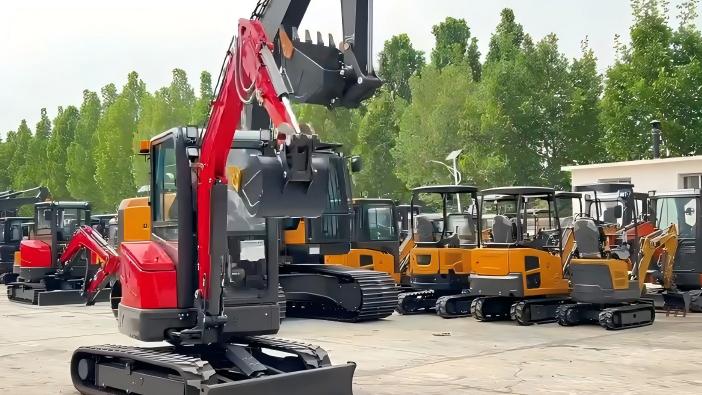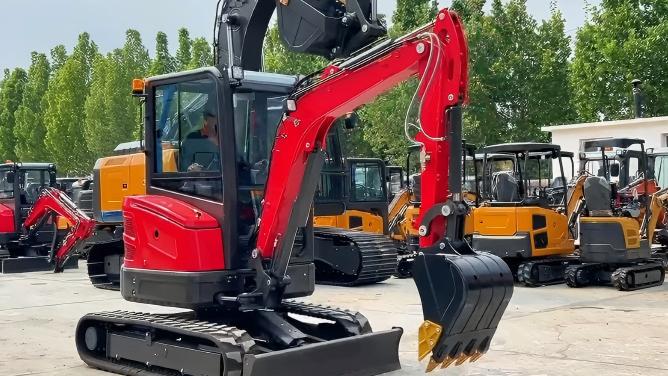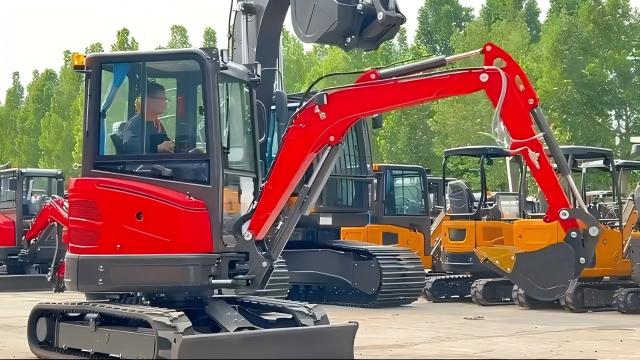Excavators are the workhorses of construction, mining, and demolition sites. These powerful machines are a significant investment, and their continuous, heavy-duty operation makes them susceptible to wear and tear. To maximize their lifespan, ensure optimal performance, and prevent costly breakdowns, a comprehensive and proactive maintenance regimen is essential. Neglecting maintenance can lead to premature component failure, reduced efficiency, higher operating costs, and potentially dangerous working conditions.
This article outlines the critical aspects of excavator maintenance, from daily checks to long-term strategies, all aimed at extending the life of your valuable asset.
Daily Pre-Operation Checks: The First Line of Defense
Daily inspections are the simplest yet most effective way to catch minor issues before they escalate into major problems. These checks should be performed before the excavator begins work each day.
Fluid Levels: Check engine oil, hydraulic fluid, coolant, and fuel levels. Low fluid levels can lead to overheating, increased friction, and severe component damage. Ensure fluids are within the recommended range and top up as necessary.
Leak Detection: Visually inspect the machine for any signs of leaks—oil, hydraulic fluid, coolant, or fuel. Leaks indicate compromised seals or lines, which can lead to system failures if not addressed promptly. Pay close attention to hoses, cylinders, and connections.
Undercarriage Inspection: Examine the tracks, idlers, sprockets, and rollers for excessive wear, damage, or loose components. Proper track tension is crucial; too tight or too loose can accelerate wear. Remove any accumulated mud, rocks, or debris that could impede track movement or cause damage.
Work Tool/Attachment Inspection: Check the bucket or other attached implements for cracks, excessive wear on teeth/cutting edges, and proper pin security. Loose or worn pins can lead to inefficient operation and potential safety hazards.
Hoses and Belts: Inspect all visible hoses for cracks, bulges, leaks, or signs of chafing. Check belts for proper tension and any signs of fraying or cracking.
Lights and Safety Features: Verify that all lights (headlights, work lights, brake lights) are functioning. Test the horn, backup alarm, and emergency stop button. Ensure mirrors are clean and properly adjusted.
Greasing Points: Identify and grease all accessible grease zerks according to the manufacturer's recommendations. Proper lubrication reduces friction and wear on pins, bushings, and pivot points.
Regular Scheduled Maintenance: Following the Manufacturer's Guidelines
Beyond daily checks, excavators require periodic maintenance at specified hour intervals (e.g., 50, 250, 500, 1000, 2000 hours). Adhering to these schedules is paramount for longevity.
Engine Oil and Filter Replacement: Engine oil lubricates moving parts and dissipates heat. Over time, it degrades and accumulates contaminants. Regular oil and filter changes are essential to prevent premature engine wear.
Hydraulic System Maintenance:
Hydraulic Fluid Replacement: Hydraulic fluid is the lifeblood of an excavator, transmitting power to the cylinders and motors. It degrades from heat and contamination. Regular replacement, along with hydraulic filter changes, is crucial for maintaining system efficiency and preventing component damage.
Hydraulic Filter Replacement: Filters remove contaminants from the hydraulic fluid. Clogged filters restrict flow and can lead to overheating or component wear.
Fuel System Maintenance:
Fuel Filter Replacement: Fuel filters prevent contaminants from reaching the engine's fuel injection system. Clogged filters can lead to reduced power and engine damage.
Water Separator Draining: Regularly drain the water separator to remove accumulated water from the fuel, preventing corrosion and fuel system issues.
Air Filter Inspection and Replacement: Engine air filters prevent dust and debris from entering the engine. Clogged filters restrict airflow, reducing engine performance and increasing fuel consumption. Inspect regularly and replace as needed.
Coolant System Maintenance: Check coolant levels and condition. Replace coolant and inspect hoses and radiator for leaks or blockages according to the manufacturer's schedule. A properly functioning cooling system prevents engine overheating.
Transmission Fluid and Filter (if applicable): For excavators with multi-speed transmissions, regular fluid and filter changes are vital for smooth operation and longevity.
Final Drive Oil Replacement: The final drives are critical for track movement. Regularly check and replace their oil to ensure proper lubrication and prevent wear.
Swing Drive/Gearbox Oil Replacement: The swing drive facilitates the rotation of the upper structure. Its oil needs to be checked and replaced periodically.
Battery Maintenance: Keep battery terminals clean and free of corrosion. Check electrolyte levels (if applicable) and ensure proper charge to prevent starting issues.
Track Tension Adjustment: Periodically check and adjust track tension to the manufacturer's specifications. Incorrect tension accelerates wear on tracks, idlers, and sprockets.
Advanced Diagnostics and Proactive Measures
Beyond routine maintenance, implementing advanced diagnostic techniques can provide valuable insights into the health of your excavator.
Fluid Analysis (Oil Sampling): Regularly sending samples of engine oil, hydraulic fluid, and coolant for laboratory analysis can detect early signs of wear, contamination, and component degradation. This allows for proactive maintenance and prevents catastrophic failures.
Thermal Imaging: Using thermal cameras can identify overheating components in the engine, hydraulic system, or electrical system, indicating potential issues before they become critical.
Vibration Analysis: Monitoring vibration patterns in rotating components (e.g., engine, pumps) can help detect imbalances or bearing wear, signaling the need for repair before a complete breakdown.
Pressure Checks: Regularly check hydraulic system pressures against specifications to identify pump wear or valve issues.
Operator Best Practices and Training
Even the best maintenance program can be undermined by improper operation. Well-trained operators are crucial for an excavator's longevity.
Smooth Operation: Encourage operators to avoid harsh movements, excessive idling, and overloading the machine. Smooth, controlled movements reduce stress on components.
Awareness of Machine Limits: Operators must understand the excavator's weight limits, reach capabilities, and stability factors to prevent tipping or component damage.
Site Awareness: Training operators to be aware of their surroundings, including obstacles, uneven terrain, and utilities, minimizes the risk of collisions and accidental damage.
Proper Shutdown Procedures: Following recommended shutdown procedures (e.g., allowing the engine to cool down before shutting off) can prevent premature wear on turbochargers and other components.
Storage and Protection
When not in use, proper storage and protection can significantly impact an excavator's lifespan.
Cleanliness: Thoroughly clean the excavator before storage, removing mud, debris, and corrosive materials.
Lubrication: Grease all points and ensure fluid levels are adequate.
Indoor Storage: Whenever possible, store the excavator indoors to protect it from harsh weather, UV radiation, and theft.
Battery Disconnection: For long-term storage, disconnect the battery to prevent discharge.
Protection from Elements: If outdoor storage is unavoidable, use covers to protect vulnerable components from rain, snow, and sun.
Conclusion
Excavators are complex and robust machines, but their enduring performance and longevity are directly proportional to the quality and consistency of their maintenance. By implementing a diligent regimen of daily checks, adhering strictly to manufacturer-recommended service intervals, leveraging advanced diagnostics, promoting operator best practices, and ensuring proper storage, you can significantly extend the operational life of your excavator. This proactive approach not only safeguards your significant investment but also ensures maximum uptime, enhanced productivity, and a safer working environment. Remember, maintenance is not an expense; it's an investment in the future of your equipment.
Post time:Sep-25-2020



